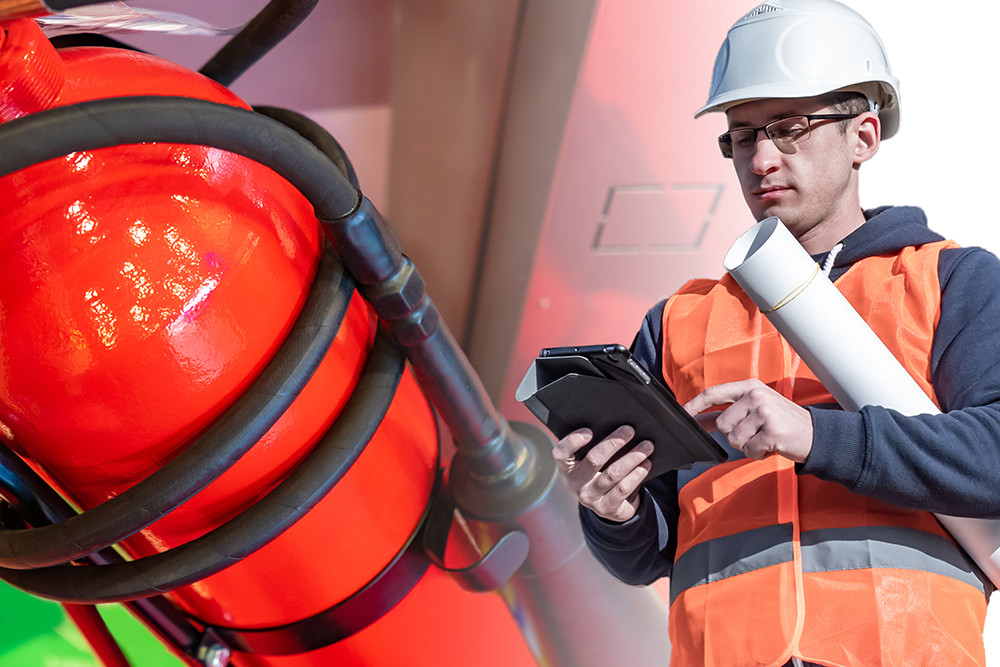Whether building an addition or converting existing space into an accessory dwelling unit, adhering to fire safety requirements is crucial. From alarms and extinguishers to emergency escape options and fire-resistant building materials, follow our Alameda ADU Checklist to ensure your ADU meets all essential fire codes.

Content
Understanding ADUs and Their Fire Safety Challenges
Accessory Dwelling Units (ADUs) are secondary housing units that exist on the same property as a primary residence. They come in various forms, such as converted garages, standalone cottages, or additions to the main house. ADUs have gained popularity for their versatility and the additional living space they provide.
Unique Fire Safety Challenges:
- Limited Space: ADUs are often smaller than primary residences, which can make it challenging to implement comprehensive fire safety measures without compromising on living space.
- Shared Utilities: In some cases, ADUs may share utilities with the main dwelling, increasing the risk of fire spread between structures.
- Occupant Density: The close proximity of occupants in ADUs can pose challenges during evacuations in case of a fire emergency.
- Building Materials: Older ADUs may have outdated building materials that are more susceptible to fire hazards.
Key Code Requirements for Fire Safety in ADUs
When it comes to ensuring fire safety in Accessory Dwelling Units (ADUs), there are specific code requirements that must be met to protect the occupants and property. Let’s delve into some of the key regulations that focus on fire prevention and protection in ADUs:
Smoke Alarms and Carbon Monoxide Detectors:
- Smoke Alarms: Every sleeping room in an ADU should be equipped with a smoke alarm. Additionally, there should be a smoke alarm outside each sleeping area within the unit.
- Carbon Monoxide Detectors: It is essential to install carbon monoxide detectors in ADUs, especially if they have fuel-burning appliances like gas stoves or furnaces.
Egress Requirements:
- Escape Routes: ADUs must have proper egress routes that allow occupants to exit safely in case of a fire. This includes clear pathways, unobstructed windows, and accessible doors.
- Window Sizes: Windows in bedrooms and living areas need to meet specific size requirements to serve as emergency exits.
Fire Suppression Systems:
- Fire Extinguishers: It is crucial to have fire extinguishers readily available within an ADU. They should be easily accessible and maintained regularly.
- Sprinkler Systems: Depending on the regulations in your area, installing a sprinkler system may be required for enhanced fire protection.
Implementing Fire Safety Measures in ADUs
When it comes to implementing fire safety measures in Accessory Dwelling Units (ADUs), homeowners need to be proactive and diligent in ensuring the safety of their living space. Let’s explore some practical steps that can be taken to enhance fire safety in ADUs:
Regular Maintenance Checks:
- Check Smoke Alarms: Make it a habit to test smoke alarms regularly to ensure they are functioning correctly. Replace batteries as needed and replace the alarms every ten years.
- Inspect Heating Systems: Have heating systems, such as furnaces or space heaters, inspected annually by a professional to identify any potential fire hazards.
Fire Safety Equipment:
- Fire Extinguishers: Keep at least one fire extinguisher in an easily accessible location within the ADU. Make sure everyone knows how to operate it.
- Escape Plan: Develop a fire escape plan with all occupants of the ADU. Practice drills so that everyone knows what to do in case of a fire emergency.
Electrical Safety:
- Avoid Overloading Outlets: Do not overload electrical outlets or use extension cords excessively. This can lead to overheating and potentially cause fires.
- Upgrade Wiring: If the ADU has old or faulty wiring, consider upgrading it to reduce the risk of electrical fires.
By taking a proactive approach to fire safety in ADUs and staying up-to-date with the latest building codes, homeowners can create a secure living environment for their tenants or family members. Remember, when it comes to fire safety, it’s always better to be safe than sorry.

My name is Author Name. I post about home improvement ideas and how to make your home look beautiful and liveable. I hope my posts will help you with your DIY projects!